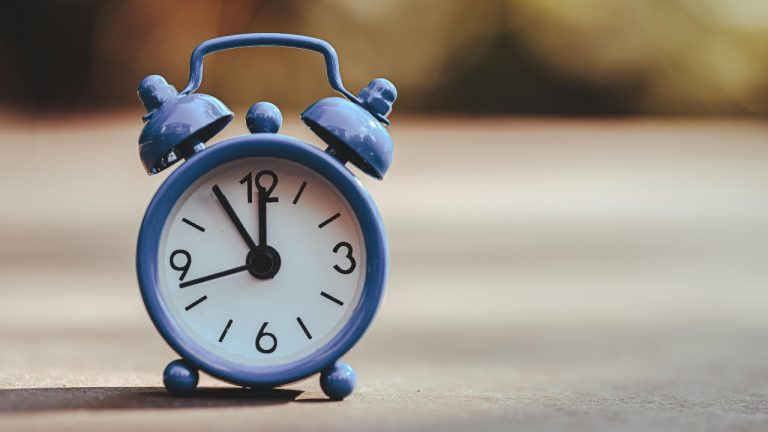It starts the same way every week.
That slow, sinking feeling around 7:42 p.m. when the sun has technically set, but your brain is still somewhere between “lazy Sunday” and “five unread emails from HR.” The air feels heavier. The leftovers taste less exciting. You keep glancing at the clock like it’s counting down to something cosmic though really, it’s just Monday.
There’s a term for it, of course. Sunday scaries. We’ve all seen the memes. But somewhere between the jokes and the relatable reels, a quiet truth sits: we’ve built entire rituals around this anxiety. Tiny, personal ceremonies that somehow make dread feel… manageable. Even beautiful, sometimes.
Maybe you light a candle. Maybe you doom-scroll until your thumb cramps. Maybe you rewatch the same sitcom you could quote in your sleep. Each of these is a small rebellion against the ticking clock, an odd kind of comfort in pretending we have control over time.
Let’s look closer.
The “Productivity Illusion” Ritual
You know this one.
You open your Notes app or a new Notion page and start typing The Perfect Plan. You write things like “5am gym,” “no screen time,” and “read before bed.” The optimism is sincere, almost cinematic. For a moment, you believe that this week, you’ll finally become the version of yourself you keep promising to meet.
Then Monday arrives. And the list feels heavier than helpful.
Still, there’s something soothing about it. The illusion of control scratches an ancient itch. Anthropologists might call it a modern prayer, a whispered attempt to make chaos predictable. The act itself matters more than the follow-through.
It’s why stationery aisles still exist, why planners never truly go out of fashion. We crave a clean slate, even when we secretly know it’ll end up coffee-stained by Thursday.
Funny how that happens.
The “One More Episode” Defiance
Another crowd favourite.
You know you should sleep. The work laptop is charging quietly in the corner like a loaded weapon. But the autoplay countdown has started, and your finger twitches toward Next Episode.
You give in. Obviously.
This ritual isn’t laziness, it’s protest.
A small, delicious mutiny against the corporate calendar. You’re saying, I still have hours that belong to me. You’re claiming time back, one Netflix cliffhanger at a time.
There’s science behind it too: dopamine and defiance create a potent cocktail. It’s why binge-watching feels more powerful than meditation some nights. The brain is tricked into thinking it’s reclaiming freedom, even if tomorrow’s version of you pays the price.
And maybe that’s okay. Because sometimes peace isn’t about doing the right thing, it’s about doing the human thing.
The “Overcleaning” Escape Plan
You start wiping counters that were already clean. Folding clothes you folded yesterday. Rearranging shelves until they squeak with precision.
To the outside world, it looks productive. But inside, it’s a soft panic disguised as order.
This ritual gives anxiety a job to do. Instead of letting dread wander your mind unchecked, you hand it a sponge and say, Here, scrub this instead. There’s power in visible progress. A messy inner world feels quieter when the sink gleams.
Still, overcleaners often forget to rest. You can’t vacuum away existential dread. (People have tried.)
But if a spotless living room buys you a few hours of calm before the week begins, maybe it’s worth it.
The “Scrolling Until Empty” Routine
You swear you’ll just check one notification. Then suddenly, it’s 10:56 p.m. and you’ve learned three new celebrity breakups, five productivity hacks, and exactly nothing about your own life.
The scroll ritual is the modern campfire. The glow of your phone replaces the warmth of shared firelight except now, you sit alone, faces flickering in tiny rectangles.
There’s comfort in it, oddly. The collective participation in distraction. Everyone’s doing it; nobody admits it’s not working.
And yet, hidden in the feed, you sometimes find something that does land a post about slowing down, a stranger’s story that mirrors yours, a meme that makes the weight feel a bit lighter. For a moment, you exhale.
The scroll ends not with satisfaction, but with surrender. You drop the phone, stare at the ceiling, and whisper, Okay, this week, I’ll do better. You won’t. But it’s nice to believe.
The “Self-Care but Make It Guilt” Ritual
A bubble bath. A glass of wine. A facemask. Somewhere along the way, capitalism rebranded basic decompression into self-care content.
You light the candle, play soft jazz, and post a story captioned “reset mode.” But halfway through, the guilt creeps in. Should you be relaxing when there’s laundry undone? Should you reply to that email before bed?
This is the paradox we’re told to rest, but only efficiently. We’ve turned recovery into performance.
Yet when the water’s warm and the world quiets down, something honest surfaces. Beneath all the influencer gloss, this ritual still holds magic: the right to stop being productive, even for a few moments.
And that’s the thing Sunday anxiety hates most: the audacity to rest without justification.
The “Deep Talk with Yourself” Hour
It often starts unintentionally. Maybe while brushing your teeth. Maybe mid-shower when the echo feels too honest. You begin evaluating everything: your career, your friendships, your five-year plan. The mirror becomes a therapist, uninvited but persistent.
For many, this ritual isn’t punishment; it’s processing. Sunday’s silence amplifies what we’ve ignored all week. Regrets bubble up. Goals rearrange themselves.
The trick, I’ve learned, is not to shut it down too quickly. Those uncomfortable questions often lead to quiet clarity. But left unchecked, they can spiral into existential karaoke loud, off-key, and deeply unnecessary.
Some people write. Some people pray. Some people just cry a little and call it cleansing. Whichever form it takes, it’s one of the most human rituals we share the act of facing ourselves before the week faces us.
The “Little Joy Reset” Habit
Not everyone fights Sunday anxiety with overthinking. Some have learned micro-resistance small joys that interrupt the gloom.
It could be ordering your favourite comfort meal. Or setting your outfit for Monday and realising, oddly, it looks good. Or calling that one friend who never sugarcoats things but still makes you laugh until your ribs hurt.
These gestures are tiny acts of rebellion. They remind your brain that life continues outside work calendars and productivity loops.
And it works. Because anxiety hates being outnumbered by moments of genuine warmth.
So Which Ritual Is Yours?
Here’s the twist: there’s no right one.
Each Sunday night ritual tells a small truth about what we value control, connection, escape, or hope. They’re not weaknesses; they’re translations of care.
The “Productivity Illusion” says you crave direction.
The “One More Episode” insists you need rest disguised as rebellion.
The “Overcleaning” shows you calm through control.
The “Scrolling” admits you seek shared loneliness.
The “Self-Care” hints at your exhaustion.
The “Deep Talk” proves you still care enough to reflect.
And the “Little Joy Reset”? That’s the one quietly healing you each week, even if you don’t notice.
We label them as quirks, but they’re closer to survival techniques.
The Cultural Core of Sunday Dread
It’s not just you. Sociologists have traced “Sunday anxiety” to a deeper cultural cycle: the dissonance between personal rhythm and institutional time. We build lives around calendars we didn’t design. Weekends promise freedom, but only temporarily.
By Sunday night, that illusion fractures. We become aware of the trade of our hours for a sense of belonging or stability. The unease isn’t weakness; it’s a side effect of being conscious in a system that measures worth in deliverables.
So our rituals emerge as resistance. Not rebellion, exactly more like micro-defiance wrapped in comfort.
Lighting a candle, cleaning the kitchen, texting someone “ready to reset” all of it says, I still decide how I feel about tomorrow.
Maybe We Don’t Need to Fix It
Here’s a wild thought: maybe Sunday anxiety doesn’t need to be cured. Maybe it’s the body’s way of marking the emotional sunset before a new week’s dawn.
Because in that discomfort lies awareness. Of what you want, what you fear, what still feels unfinished.
If we stop pathologising it and start listening, Sunday anxiety might become less monster, more messenger.
It tells you where you’re stretched too thin.
It reminds you what you actually care about.
It invites you quietly to reimagine what peace could look like on a Monday morning.
Not perfect, just honest.
If this made you pause or smile, explore more playful, thought-provoking quizzes on Trendy Quiz because self-discovery should always feel fun.




